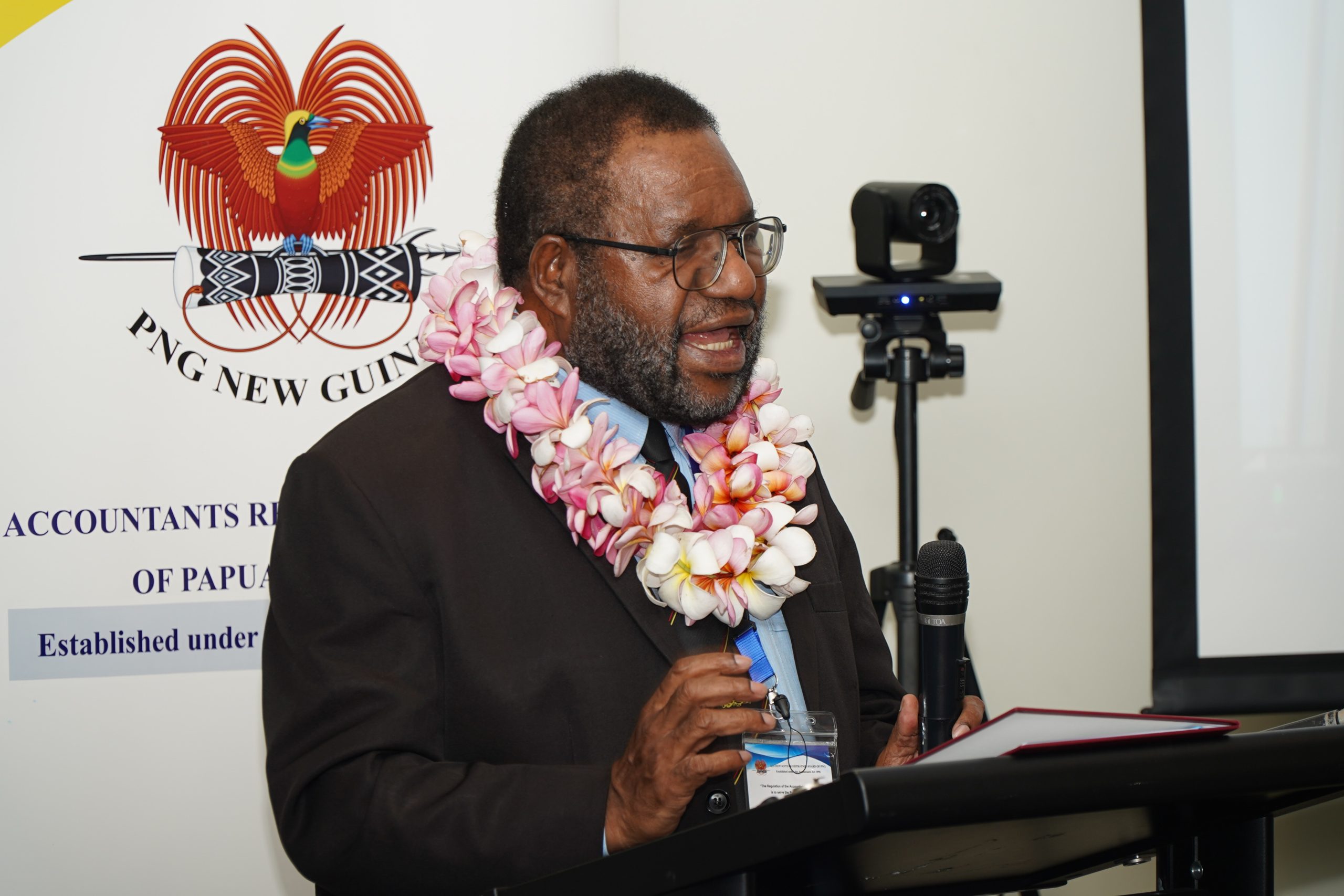The Constitution and specific Organic Laws of Papua New Guinea expressly guarantee the independence of the Auditor-General (AG) However, there have been ongoing legislative attempts to encroach upon the independence of the AG. This encroachment persisted for many years until Mr. Gordon Kega, the current Auditor-General. took decisive action to resolve these impositions. Mr. Kega received invaluable legal assistance from a team of lawyers consisting of the Public Solicitor of Papua New Guinea Mr. Leslie B Mamu, who is also a constitutional office-holder, the Office of the Auditor-General Legal Counsel, Ms. Joan Arni-Posman along with a team of assisting counsels comprising the Deputy Public Solicitor, Mr. Thomas Ilaisa and Mr. Lawrence Giyomwanauri.
At the behest of the AG, the State Solicitor, referred five questions of constitutional interpretation and application to the Supreme Court of Papua New Guinea seeking its opinion on each question. A Legal Report was internally prepared to lay the foundation to assist the constitutional challenge. The synergy between the two constitutional office-holders was instrumental in achieving a successful outcome at the Supreme Court.
The Supreme Court’s decision [SC2299] [Reference by the Public Solicitor re Jurisdiction of the Public Services Commission and the Powers and Functions of the Auditor-General [2022] PGSC 98; SC2299 (11 October 2022)] upholding the independence of the AG of SAI Papua New Guinea at the incursion of the passage of an Act of Parliament, is a crucially significant milestone. It highlights that AG and OAG are important pillars and functionaries of the Constitution and the necessary autonomy attached to it is a prime safeguard that the Supreme Court will protect.
The Supreme Court decision highlighted that the AG of Papua New Guinea enjoys different and robust layers of constitutional safeguards or protection that enable him, the Office of the Auditor-General (OAG) and officers of the OAG to perform the AG’s mandated functions and responsibilities under the National Constitution (NC) and those provided under relevant enabling legislations conferring additional functions and duties on the AG. Listed below are the different layers of constitutional safeguards recently fortified by the Supreme Court of Papua New Guinea. That-
- the AG is not subject to the control, dictates, and direction of any person or authority;
- the AG is not part of the National Public Service and hence, the Public Service Commission (PSC) has no jurisdiction to review the personnel decisions of the AG. Not being a governmental body or a State Service safeguards the AG, OAG, and the staff of the OAG from any overreach by the PSC;
- the Auditor-General is a constitutional office-holder and the recent attempt to alter the status of the AG to a departmental head inundating it with the dictates of the various government pieces of machinery, is unconstitutional. The AG’s standing and office cannot be diluted by subordinate legislation that reduces him to a departmental head;
- the SAIPNG is a constitutional institution. To alter and downgrade it through the passage of an ordinary Act of Parliament (the Public Services (Management) (Amendment) Act 2020, is unconstitutional;
- the appointment process of the Auditor-General is secured by Constitution Laws. The Constitution Laws guarantee that the AG must be employed (as to qualification, appointment, terms, and conditions of employment) in accordance with Constitutional Law and not any subordinate legislation;
- the Auditor-General cannot be suspended, dismissed, or removed from office during his tenure of office except in accordance with a Constitutional Law. The OAG cannot be abolished during the currency of a substantive appointment of the AG. The Constitution also prohibits the reduction of the total emoluments of the AG during the effective tenure in Office;
- there is an expressed constitutional safeguard accorded to all officers and employees performing audit and related audit services arising from a direction from the AG. All officers, and employees whilst acting on or under the directions of the Auditor-General are subject only to the direction and control of the Auditor-General and no other. The personnel working for the OAG are not categorized as public servants. They are employed by the AG exclusively in accordance with the Audit Act 1989.
The Supreme Court affirmed the independence and powers of the Auditor-General as a vital constitutional office and ruled that the Public Services Commission has no jurisdiction over the Office of the AG and to the extent that an ordinary Act of Parliament had attempted to alter the status of the AG from a Constitutional Office-holder to a departmental head of the National Public Service and the OAG to a Department of the National Public Service, it was declared unconstitutional. The declaration of the Supreme Court of Papua New Guinea unanimously upheld the independence of the Auditor-General and the Office of the Auditor-General.
The AG and the OAG, both creatures of the National Constitution are primarily established and fully provided for by Constitutional Laws. The sanctity of the National Constitution was upheld and guarded against any attempt by an organ of government to subordinate and violate one of its fundamental pillars; the AG and the OAG. The sanctity of the NC branches out into the mandates of the AG and the OAG under Constitutional Laws which also has sanctity that, by obvious extension, cannot be trampled on by the National Parliament’s passage of the ordinary Act of Parliament, the Public Services (Management)(Amendment) Act, 2020).
SAI Papua New Guinea would like to share with you the Supreme Court Decision relating to the Auditor-General’s successful challenge to protect the independence entrust to him and the Office of Auditor-General. You can access a copy of the decision by following this link- SC2299.
We would also like to inform you that a copy of the Legal Report that laid the foundation for the Supreme Court Reference is available only by request and approval from the Auditor-General. It is a restricted document.


